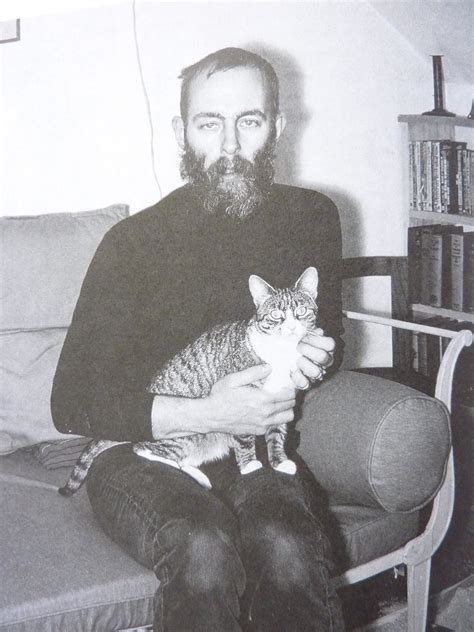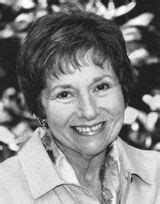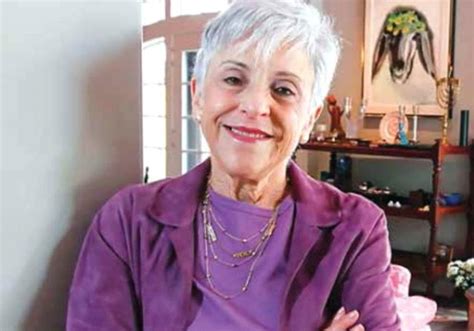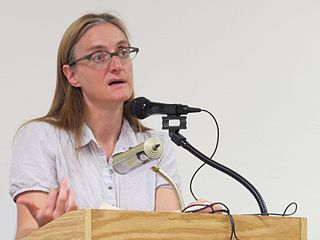A Quote by Steve Scott
In the Church, when we talk about 'the world', we often create an us and them situation and end up planting the seeds of all that we feel wrong with the world in the soil of our own backyard.
Related Quotes
We all end up living secret lives. We create what we are willing to admire and admiring what we shouldn't confess to the secret ofour own sin, our own insufficiency, our own sadness. We all end up taking our secrets into the world and handing them over to strangers, only to realize it's often too late to claim them back. The very nature of time passing is sad beyond words. Memories mean they're gone.
It is possible to move through the drama of our lives without believing so earnestly in the character that we play. That we take ourselves so seriously, that we are so absurdly important in our own minds, is a problem for us. We feel justified in being annoyed with everything. We feel justified in denigrating ourselves or in feeling that we are more clever than other people. Self-importance hurts us, limiting us to the narrow world of our likes and dislikes. We end up bored to death with ourselves and our world. We end up never satisfied.
Let us be different in our homes. Let us realize that along with food, shelter, and clothing, we have another obligation to our children, and that is to affirm their "rightness." The whole world will tell them what's wrong with them--out loud and often. Our job is to let our children know what's right about them.
The end comes when we no longer talk with ourselves. It is the end of genuine thinking and the beginning of the final loneliness. The remarkable thing is that the cessation of the inner dialogue marks also the end of our concern with the world around us. It is as if we noted the world and think about it only when we have to report it to ourselves.
We human beings are not only the beneficiaries but also the stewards of other creatures. Thanks to our bodies, God has joined us so closely to the world around us that we can feel the desertification of the soil almost as a physical ailment, and the extinction of a species as a painful disfigurement. Let us not leave in our wake a swatch of destruction and death which will affect our own lives and those of future generations.
I believe that we face incredible obstacles in our attempts to see the world. Everything in our nature tries to deny the world around us; to refabricate it in our own image; to reinvent it for our own benefit. And so, it becomes something of a challenge, a task, to recover (or at least attempt to recover) the real world despite all the impediments to that end.
These days, more than any other time, we are worried about our personal life, our private life. When we talk about our private life, it means our home, our body even. It seems that when we want to have calmness in this world, we make a wall around us. This gives us a very calm environment, and when we feel that somebody is intruding into that, it makes us very angry and we feel we have to do something about it.
It's what each of us sows, and how, that gives us character and prestige. Seeds of kindness, goodwill, and human understanding, planted in fertile soil, spring up into deathless friendships, big deeds of worth, and a memory that will not soon fade out. We are all sowers of seeds-and let us never forget it!
Why are you uncomfortable with the supernaturalist worldview of the biblical writers? Evangelicals don't want to just say, "Well, the inspired writers were wrong about some of their beliefs about the spiritual world and its inhabitants." That really doesn't work in a confessional situation! So instead we come up with excuses and interpretations that allow us to remake the biblical writers in our own post-Enlightenment image. I understand that impulse, but it's not honest.
I'm absolutely convinced that this is a world of appearances, not reality. There's one reality and that's Light and Love. When some say, we create our own reality, I always demur and say, "Please, would you mind adjusting that a little bit? We create our own appearances." We become master of appearances and as we change our thought, we will see the appearances around us change. That gives us this huge sense of dominion and power and control over our world.
I've often wondered about the shyness of some of us in the West about standing for these ideals that have done so much to ease the plight of man and the hardships of our imperfect world. Let us be shy no longer. Let us go to our strength. Let us offer hope. Let us tell the world that a new age is not only possible, but probable.
I don't think people are like, "I'm going to save the planet by planting my own herbs." But on environmental issues like climate change, there's a sense of hopelessness and despair. Maybe it's really a small gesture but if you can have a garden it may make you feel like you're helping in some way, or that you're making a connection. You can't change the world but you can change your backyard.






































